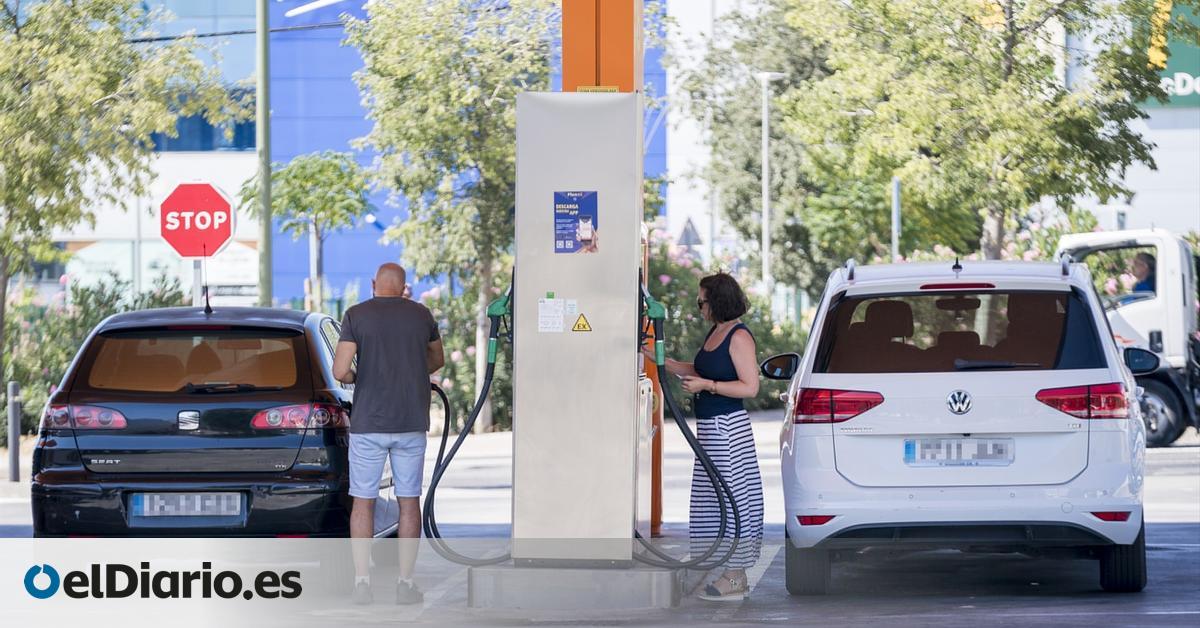
Inflation has moderated in September to 1.5%, compared to the same month a year ago, as announced by the INE this Friday. The CPI (Consumer Price Index) has fallen eight tenths from 2.3% in August. This interannual rate is the lowest for three and a half years. Exactly, since March 2021, just before the inflation crisis of recent years began.
In simpler terms, prices are still rising overall, but they are doing so at the slowest pace in a long time. And, within the basket of products and services contemplated by the CPI, “the decrease in fuel prices and also food and electricity prices has allowed September to produce the greatest decrease in the inflation rate of the last exercise”, they explain from the Ministry of Economy.
Core inflation, which excludes precisely energy and food prices from its calculation to give a more stable view of the evolution of prices, has also continued to fall to 2.4%. In this case, it is the lowest interannual rate since January 2022.
In the monthly calculation, comparing September with August, prices fell by 0.6% if the general CPI is taken as a reference. It is the largest drop since September 2022. For its part, the underlying CPI fell 0.4% in September compared to August. It is the sharpest monthly decline since the beginning of the year.
“The continued reduction in inflation continues to demonstrate the effectiveness of economic policy measures and the capacity of the Spanish economy to reconcile the highest economic growth among the main eurozone countries, four times higher than the eurozone average. , with a moderation of prices,” they add from Carlos Corpo’s department.
“These factors, together with the positive evolution of the labor market, are allowing the purchasing capacity of citizens and the real income of households to improve,” the Ministry analyzes.
On average, inflation will be slightly above 3% throughout 2024. The OECD revised its inflation forecasts this Wednesday, estimating that in 2025 it will definitely be around 2% on average, throughout the year. A forecast similar to the one it launches for the eurozone as a whole, and which will encourage the European Central Bank (ECB) to cut official interest rates and ease financing conditions and the cost of mortgages and loans in general.
Access to housing due to rising prices is the main problem for families, especially for the most vulnerable and in capitals and tourist areas, where work is concentrated. The other major economic problem is the inequalities of wealth and income, which mean that households that depend solely on their salaries have been especially suffocated by inflation, increases in interest rates and the housing market.
“Inflation in Spain is already below the 2% target. The umpteenth proof that the inflationary episode was never due to creating money or having a lot of public spending (because that continues to happen), but rather due to an energy supply shock to which was added the greed of many,” economist Eduardo Garzón reacted in the social network X (formerly Twitter).
The inflation crisis leaves behind its worst consequences for families’ pockets, but it must be taken into account that the accumulated price increase is close to 18% since 2021.
Government measures against inflation
At the end of July, the coalition Government achieved validation in the Congress of Deputies of the latest anti-crisis decree, approved in the Council of Ministers on June 25, with measures to alleviate the damage of inflation. Among them, the reduction of VAT on olive oil to 0%, the increase in salaries for civil servants in 2024 or the extension of the electric social bonus.
This latest package extends some measures in force from the end of 2023, but eliminates others, “in response to the moderation of inflation” and to comply with the fiscal rules of the European Union (EU), which have been activated in 2024 – as explained the Executive—, after remaining suspended since 2020 to allow a social response to the double shock of the pandemic and the Russian invasion of Ukraine.
“We have taken measures for 120,000 million since 2020. An unprecedented fiscal impulse to protect incomes, save jobs and transform the economy,” said the first vice president, María Jesús Montero. “In the previous financial crisis, expired austerity measures were applied,” said the Minister of Finance.
One of the big problems addressed by the latest anti-crisis decree approved by the Council of Ministers at the end of June is food inflation. The main measure of the Coalition Government to alleviate this damage to families, especially the most vulnerable, was the cut in VAT on basic foods from the beginning of 2023. This tax reduction expired at the end of this month, but the Executive decided to extend it in the Council of Ministers on June 25, with an extraordinary effort – agreed with Junts – to control the price of oil, totally exorbitant in this inflation crisis.
Oil, which has already gone from 10% to 5% VAT since the anti-crisis decree that began to be implemented in January 2023, is now part of the group of essential products – bread, flour, milk, cheeses , eggs, fruits and vegetables—which have a 0% rate from last year (instead of the 4% that applied until then) until September 30. Starting in October they will go to 2% VAT, until the end of the year.
The total cost of all the measures taken since 2021 specifically to alleviate the damage of inflation is around 50,000 million, with the most expensive measures being those related to electricity (which exceed 20,000 million between all: cut of the VAT of the invoice, special tax, subsidies to the sector…) and deductions in IRPF (income tax).
Precisely, in June other measures of the anti-crisis decree that expired at that time were extended, such as the reduction of personal income tax for families with less income, exactly for those who receive the Minimum Interprofessional Wage (SMI), but which will benefit incomes of up to 22,000 euros gross. annual. “The sum of the fiscal measures, between VAT and Personal Income Tax, represents savings of 3,000 million euros per year for families,” said the first vice president and Minister of Finance.
“We also extend the social shield for the most vulnerable groups, who also benefit from the previous measures,” added Montero. This social shield includes the prohibition of water and energy supply cuts to vulnerable consumers, until the end of the year. In addition, the new anti-crisis decree makes the last resort rate (the TUR) of gas for communities of owners indefinite.
Meanwhile, the VAT on the electricity bill for domestic contracts only returns to the reduced value of 10% if the rebound in the price of the wholesale electricity market goes above the bar of 45 euros per megawatt hour (MWh), as contemplated in the first anti-crisis decree of 2021.
Source: www.eldiario.es

